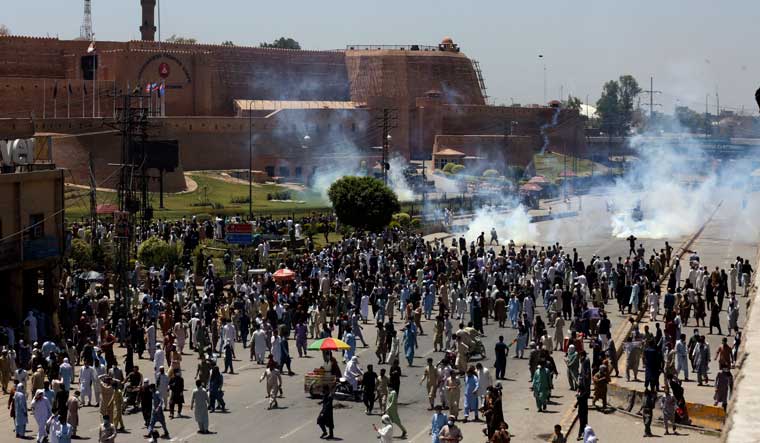
Pakistan has been caught in a cycle of political instability and the turmoil that follows. Since its establishment, the country has experienced significant political crises, military dictatorships, and several coups, leaving dark stains on its history for future generations to read.
With politicians constantly blaming one another and hiding the shortcomings of their governments, the country continues to move downhill with each passing day. The May 9th incident and its aftermath have only deepened the bitterness in the political climate, shattering the notion of a democratic system on which Pakistan was originally built.
Amid this political downfall, it’s clear who's suffering the most: the public. Enduring the pressure of the government’s incompetence, the people are being crushed under the weight of political disruption every day.
When considering the effects of political instability, it’s not just the economy that’s at risk, but also the social cohesion and security of the nation. This is an alarming situation that only adds to the gravity of the problem.
Spike in Inflation
The inflation rate hit a record high of over 9.6% last month, largely due to the dollar rate, which has risen to around 277.70 PKR. This surge in inflation has left the population devastated, struggling to manage ever-increasing utility bills, taxes, and basic grocery items, doing whatever they can to make ends meet.
This economic hardship has driven many into poverty and unemployment, making people desperate to leave the country. According to the Bureau of Immigration and Overseas Employment, in 2024, more than 700,000 Pakistanis left for better job opportunities abroad, with at least 100,000 of them being highly skilled professionals, including doctors, nurses, engineers, IT experts, and accountants. This "brain drain" shows no signs of slowing down; if anything, it is accelerating, worsening the economic situation further.
Challenges to Social Cohesion
Social cohesion has also taken a massive hit due to political instability. Public trust in the government, which was already low, has now reached rock bottom due to inconsistent policies and constant government changes. This has opened the door for extremist groups to exploit people's political and social grievances. In the 21 months following the Taliban's rise to power in Afghanistan, terrorist attacks in Pakistan increased by 73% compared to the same period before their takeover. Additionally, sectarian violence has further strained social unity and stability.
A Blow to Human Rights
Human rights in Pakistan have also deteriorated amid political unrest. The rise of extremist groups and the breakdown of law and order have left the population vulnerable to abuses by security forces and extremist groups alike. The absence of accountability for human rights violations has further weakened the rule of law in the country.
Frequent government changes and a lack of political stability have caused a decline in public political participation. People have become disillusioned with the political process and have lost faith in the government’s ability to address their concerns.
A Threat to National Security
In these dire circumstances, the country’s security is in grave danger. Extremist groups are, as always, taking full advantage of the political disruption. With frequent attacks on civilians and security forces, they are seizing every opportunity to destabilize Pakistan further.
In conclusion, political instability in Pakistan has deeply impacted the lives of its citizens. It has harmed the country’s economic development, social cohesion, and security. The rise of extremist groups and the breakdown of law and order have weakened the protection of human rights, leaving the public disillusioned with the political system. Political instability remains a major challenge for Pakistan and its people.